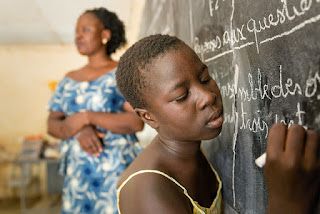Women and human rights
The larger human rights movement, which is centered on defending and advancing the rights of women and girls worldwide, includes women's human rights as an essential component. Human rights are "universal, indivisible, and inalienable rights inherent in all human beings, regardless of race, sex, nationality, ethnicity, language, religion, or any other status," according to the United Nations.
Despite the fact that all people have the right to equal protection under the law, women and girls have historically been denied those same rights and opportunities, especially when it comes to positions of political, social, and economic power. Women's rights are crucial to attaining gender equality and enabling women to fully participate in all spheres of life, such as decision-making, healthcare, employment, and education.
The right to life, the right to an education, the right to health care, the right to employment, and the right to political engagement are just a few of the essential human rights that women are entitled to. Additionally, women have particular rights pertaining to their reproductive health, such as the right to safe abortion and access to contraception, as well as the right to be free from discrimination and violence.
Due to systemic issues like poverty, lack of access to healthcare and education, social and cultural norms, and gender discrimination, the rights of women are frequently infringed. At alarmingly high proportions, women are also victims of violence, including sexual assault, domestic abuse, and forced marriage.
In order to advance women's human rights and advance gender equality, civil society and activism are essential. In addition to advocating for laws and policies that advance gender equality and safeguard women's rights, women's rights organizations and activists aim to increase public awareness of issues that impact women and girls.
The Convention on the Elimination of All Forms of Discrimination Against Women (CEDAW), an international treaty ratified by the United Nations General Assembly in 1979, is an illustration of a successful campaign for women's human rights. CEDAW mandates that states end discrimination against women and advance gender parity in all spheres of society.
In conclusion, attaining gender equality and enabling women to fully participate in all facets of life depend on women's human rights. In addition to general safeguards for reproductive health, women's rights also include freedom from abuse and discrimination, the right to political participation, education, and employment. International agreements like CEDAW offer a foundation for safeguarding and advancing women's rights, while civil society and activism play a significant role in advancing women's human rights and arguing for gender equality.




Comments
Post a Comment